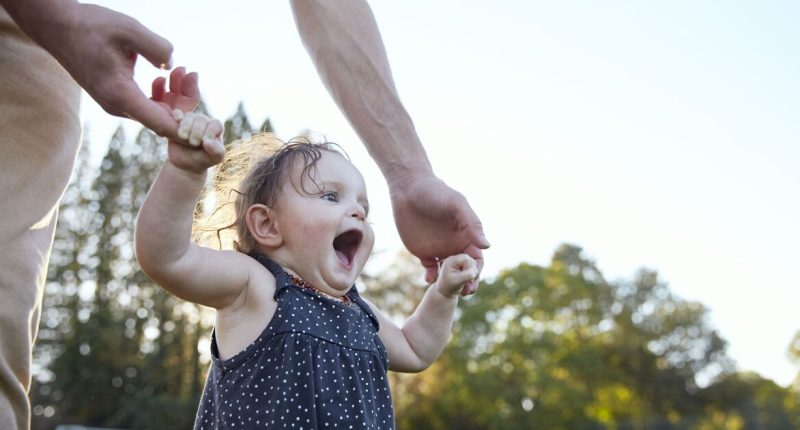Share this @internewscast.com
Babies who take longer to take their first steps could perform better at school, a new study suggests.
It has been discovered by scientists that the age babies take their first steps is strongly linked to their genetic make-up.
They have found a link between late-walking and higher educational achievement.
This suggests the gene that influences when a baby begins to walk, could determine how well they will do in school.
The study also says the chance of having Attention Deficit Hyperactivity Disorder (ADHD) could be lessened by late-walking.
From the universities in Surrey, Essex and London, the study has found genetics account for roughly a quarter of the differences between children when taking their first steps.
Angelica Ronald, a professor of Psychology and Genetics at the University of Surrey, said: “We studied hundreds of thousands of genetic differences that are common in the population.
“We see that the genetic differences that influence walking later also influence higher educational attainment and less likelihood of ADHD.
“It is the first genetic study of infant behaviour at this scale and the first one to investigate when children walk.”
Sometime between eight and 24 months is when babies tend to start walking, with the majority of toddlers likely to be walking independently at 18 months. Any longer than this period can begin to cause concern among parents.
It has been widely known among researchers that environmental factors influence when babies walk but this new finding details that genetics also plays a major role. During the study, which is published in the Nature Human Behaviour journal, scientists analysed the genetic information of more than 70,000 infants, identifying 11 genetic markers that influence when babies start walking.
Dr Anna Gui, an author of the study and a researcher at the University of Rome Tor Vergata and Birkbeck, University of London said: “Until now, we didn’t understand what causes the wide differences between children when they take their first step.”













